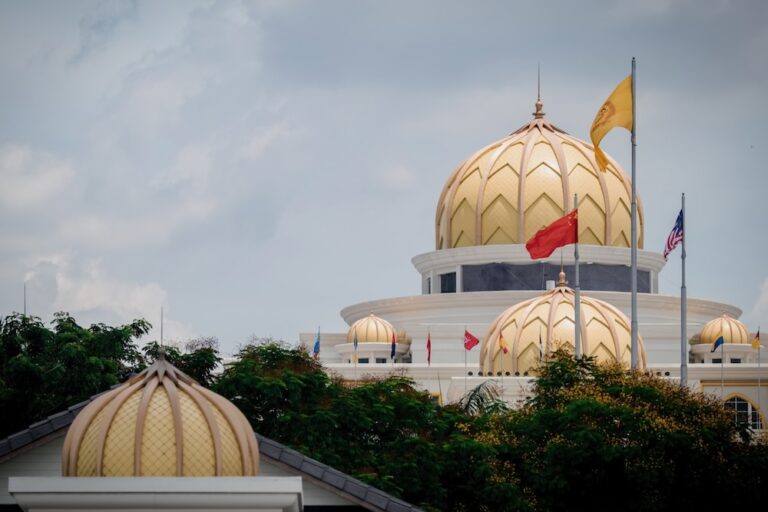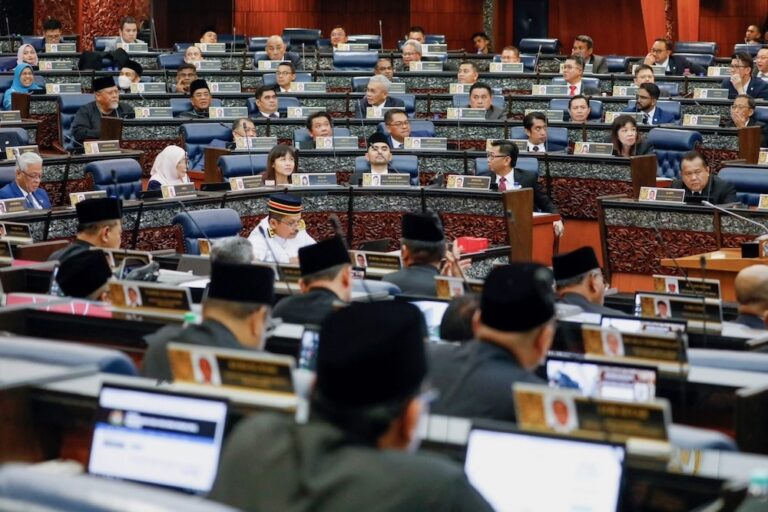The video was banned just days after Prime Minister Najib Razak promised renewed efforts toward creating a more democratic and liberal Malaysia.
(SEAPA/IFEX) – 26 September 2011 – The Malaysian Communications and Multimedia Commission (MCMC) recently issued a directive banning the “Undilah” video from public broadcast. The controversial events surrounding the video, which was released on 16 September, have left independent press observers questioning the direction of the government and the role of the MCMC.
The four minute clip produced by musician Pete Teo is aimed at increasing voter registration, particularly among the youth population. It features prominent Barisan Nasional MP Tengku Razaleigh, also known as “Ku Li”, as well as other Malaysian politicians and celebrities.
The banning of the video, according to online news portal Malaysian Insider, came just days after Prime Minister Najib Razak’s Malaysia Day speech announcing the repeal of the Internal Security Act and a requirement for annual renewal of publishing permits. Along with these reforms, the PM promised renewed efforts toward creating a more democratic and liberal Malaysia.
“If (this video) is considered sensitive, what kind of democracy and political liberalisation is the prime minister talking about?” asked Subramanium Pillay, of the popular electoral reform movement Bersih.
On 24 September, Deputy Minister Datuk Dr. Wee Ka Siong, who appears in the clip, demanded that the MCMC explain its actions in directing broadcasters not to air the video, which was an “innocent” public service announcement without any controversial content.
The same day the MCMC issued a statement claiming that its decision was in accordance with “routine monitoring and enforcement activities” and unrelated to the subject of the clip. The commission said that, in line with regulations, it could not allow airing of the video prior to its approval by the Film Censorship Board (FCB).
Media reports on 23 September, quoting anonymous sources, said that the MCMC cited two reasons for the ban: Ku Li’s declaration that Malaysia was facing problems and the inclusion of opposition politicians in the video.
Other members of government view the clip as harmful to the ruling party. MP Datuk Abdul Rahman Dahlan described it as a form of subliminal messaging with “anti-establishment undertones just below the threshold of consciousness of the viewers.”
The Centre for Independent Journalists (CIJ) urged the MCMC to “immediately rescind the directive (and) make public the findings of the inquiry which resulted in the directive being issued”. They added that the government should include amendments to the Communication and Multimedia Act (CMA) and Malaysian Communications and Multimedia Commission Act (MCMCA) as part of its package of legal reforms.
CIJ emphasised that although the MCMC is supposed to be an independent commission, members are appointed by the Information, Communications and Culture Minister, who also retains the ability under the MCMCA to dismiss any member without cause.
The video also features Deputy Health Minister Datuk Rosnah Abd Rashid Shirlin, opposition figures Petaling Jaya Utara MP Tony Pua, Lembah Pantai MP Nurul Izzah Anwar, Shah Alam MP Khalid Samad, Seri Setia assemblyman Nik Nazmi Nik Ahmad and other famous individuals.


